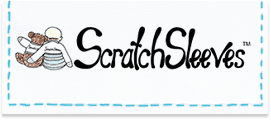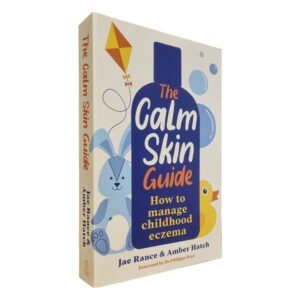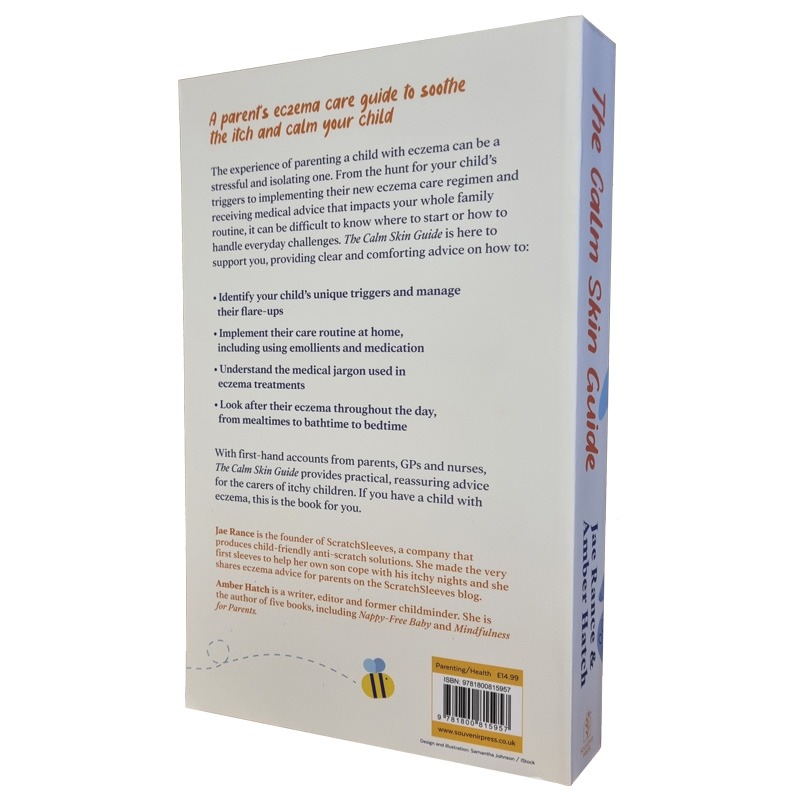Natural remedies for baby eczema: Which ones work? A review of the evidence

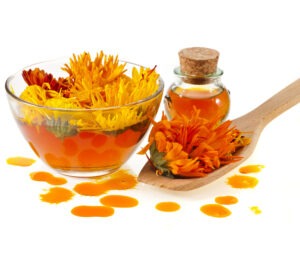

We know from experience that watching your child suffer the constant itch and irritation of baby eczema is frustrating. It doesn’t help when you feel there is little you can do to make the itch go away. While the doctors have a cupboard full of conventional remedies, they don’t always work as quickly, or well as we parents would like.
A combination of natural remedies and the prescriptions from our doctor really helped control our kids’ scratching. Especially during the all to frequent flare-ups. To make sure we were genuinely helping our son, we researched which remedies for baby eczema might actually make a difference.
Here is our run-down of the evidence supporting the most popular natural remedies for baby eczema:
Cold pressed coconut oil
We’ve heard good things about coconut oil from customers and it has worked wonders on our daughter’s dry skin. It’s one of the key ingredients in her homemade eczema salve. As well as being an effective moisturiser, there is good scientific evidence that coconut oil has anti-bacterial properties. These can substantially reduce the risk of infected eczema. We think that coconut oil is worth investigating as an eczema remedy. Especially if your baby’s eczema is prone to infections.
Read more about using coconut oil as an eczema remedy
Cold pressed sunflower oil
Another effective natural moisturiser, sunflower oil is rich in essential fatty acids which are readily absorbed through the skin. It is thought that a lack of essential fatty acids can contribute to some cases of baby eczema. There is evidence that sunflower oil helps to improve the barrier function of the skin and is anti-inflammatory. Great news when you are looking for a natural moisturiser to help your eczema baby get some relief.
If your baby suffers from colic as well as baby eczema, try massaging their tummy using coconut oil or sunflower oil (or even a mixture of both). Moisturised skin and a more comfortable belly all in a go! It’s common sense, but worth repeating – using oil on your baby may relieve their itching but will turn them into slippery little bundles. Please take extra care when picking up your baby after applying any oil (or emollient) to their skin!
Vitamin B12 cream
There has been some interesting research showings that creams containing vitamin B12 can be really effective in controlling eczema symptoms. Clinical trials to date have been on a small scale but the results look promising, so this could be worth a try.
Calendula cream
Marigold flowers (Calendula officinalis) have been used to promote healing and treat skin conditions, including eczema for centuries. Calendula cream is believed to benefit eczema by reducing inflammation, eliminating bacteria and helping the skin heal. While the effectiveness of using calendula as a natural remedy for baby eczema has not been scientifically proven, research has indicated that it can reduce inflammation and encourage healing and it has also been proven to be effective in treating eczema resulting from radiotherapy. My mum used it to treat our cuts and grazes when we were kids and, come to think of it, I can’t remember any of them getting infected. Worth a try, especially for broken skin, but do make sure you choose a cream without any chemical nasties that could irritate sensitive skin.
Oatmeal baths
Colloidal oatmeal (ground oats) has been used to relieve itching and skin irritation for millennia. A number of small trials suggest that oatmeal does indeed relieve eczema symptoms by reducing inflammation and normalising the skin pH. However, the evidence isn’t conclusive. As with all eczema remedies it seems to work for some but not others. Given that it is so simple and cheap, we think an oatmeal bath is a natural bath additive that’s worth trying. Just put a handful of colloidal oatmeal (or porridge oats whizzed in a food processor) into a sock and hold it under the tap while running the bath. The bathwater will take on a milky appearance. Once the tub is full, you can leave the sock in the bath for your baby to play with. Alternatively, our kids love the bath powders from ItchyBabyCo which are made from colloidal oats.
Salt
A number of customers have told us that they have had great results from visiting the Salt Cave clinics. These clinics use a technique called ‘halotherapy’ which is popular in Eastern Europe and Russia. High-grade salt micro-crystals are diffused into the air of the treatment rooms where the action of the salt particles on the skin decreases itching and irritation, and can result in a marked improvement in eczema symptoms.
Research shows that this treatment is particularly effective during flare-ups. The Salt Cave clinics have dedicated children’s rooms and carers are free, so definitely worth investigating if you have eczema as well! A cheaper alternative may be taking a salt water bath or a dip in the sea. We have a family history of sea water clearing up eczema. That said, do be cautious as sea water can also irritate eczema-prone skin in some people and will sting if it gets into open scratches.
Evening primrose oil and borage (star flower) oil
Evening primrose oil and borage oil are rich in essential fatty acids. For a while, taking supplements of these oils was thought to help reduce eczema symptoms. However, recent studies have cast doubt on their effectiveness. There are also practicalities of giving these supplements (which usually come as capsules) to babies and children to consider. Given the inconclusive evidence, it’s probably best to stick with a good, varied diet with plenty of other omega 3 oils.
Vitamin D
Studies have suggested that if eczema gets worse during winter, a lack of Vitamin D may be a trigger. Up to 25% of UK children are thought to be deficient in vitamin D. If your eczema baby seems to suffer more in the gloomier months of the year, it’s definitely worth trying a children’s multivitamin supplement containing vitamin D. The current Department of Health recommendation is that all kids between 6 months and 5 years old should take a good quality daily multivitamin supplement. Recent research has also shown that taking vitamin D supplements during pregnancy reduces the risk of eczema in newborns. Something to consider if you are thinking of having more children.
Probiotics
Probiotics are another natural remedy with inconclusive evidence. However, taking probiotics is generally considered beneficial, so it might be something to try. This is especially true if your baby has a history of colic or reflux in addition to eczema. There is mounting evidence that probiotics can be helpful in the treatment of both. Be aware that probiotics aim to build up a healthier flora in the gut so they do take at least a month to take effect. As with all supplements, the quality of probiotics varies widely. There is an element of ‘you get what you pay for’.
Look here more information on probiotics and eczema.
Aloe vera gel
Aloe vera gel is the thick gelatinous substance that is found inside the leaves of the succulent aloe vera plant. It contains more than 75 nutrients as well as vitamins, minerals, and fatty acids, and has been used as a natural remedy for a variety of health complaints for thousands of years.
The effectiveness of aloe vera gel for treating eczema still requires further research. However, initial studies have found it to be effective at hydrating the skin and reducing the eczema itch. The anti-microbial and anti-inflammatory properties of aloe vera gel are also thought to reduce the risk of infection in eczema and help to speed up wound healing.
Aloe vera gel for eczema is most effective and safest when applied topically to the affected area of skin. You can buy aloe vera gel online or from a chemist. For maximum benefit, it’s best to stick to the rawest formulations with Aloe vera listed as the first ingredient. Check the ingredients list carefully for potentially irritating additives such as preservatives (parabens and MCI are known eczema irritants) and fragrances. Alternatively, you can buy an aloe vera houseplant and harvest your own gel.
You can find out more about using aloe vera to treat eczema here.
Manuka honey
Manuka honey is often praised for being a ‘superfood’ because of the vitamins, minerals, and antioxidants it contains. It also has impressive antibacterial and antiviral properties.
While there is not yet any conclusive evidence that manuka honey is effective at treating childhood eczema, there have been plenty of encouraging scientific studies carried out that suggest that it could be beneficial.
It is thought that manuka honey may be able to improve the symptoms of eczema by keeping the skin moist and providing damaged skin with a protective barrier to protect it from infection. Manuka honey may also be able to inhibit the growth of the harmful bacteria that is often found on eczema-prone skin. Its antibacterial properties can help to reduce inflammation and prevent infection, giving eczema a chance to heal.
Manuka honey can be used either orally or topically; it is thought to be most effective to apply it topically when treating eczema. However, it is worth noting that the NHS does not recommend giving honey to children under the age of one.
Read more about the practicalities of using Manuka honey to treat eczema here.
Natural remedies for baby eczema
Like conventional medicines, natural remedies which work for one eczema baby may have no effect on another. All you can do is experiment with the various alternatives to see which natural remedies help your eczema baby the most. However, it’s important that you do not give up on conventional medicine. New treatments and developments do come along so stay in touch with your GP. Some doctors are more sympathetic to natural remedies for baby eczema, and will support you. But even if you find your doctor is dismissive of an alternative approach, that doesn’t have to stop you searching for something that works for your eczema baby.
Want to read more on eczema natural remedies? These are our sources:
- A great review of the scientific evidence supporting natural remedies for eczema published in Practical Dermatology
- Study looking at the effectiveness of probiotics in treating colic published in BMC Pediatrics which used these probiotics
- Effectiveness of Calendula in treatment radiotherapy-induced eczema published in the Journal of Clinical Oncology
This is the round-up article for our alternative remedies topic. You can find more detailed information by following the links in the text or in the articles below.
Our editorial policy
Here at ScratchSleeves, we aim to bring you trustworthy and accurate information. We collaborate with qualified dermatologists and doctors as well as drawing on peer-reviewed medical studies and our own experience as parents. All medical content is reviewed by a dermatologist or appropriate doctor prior to publication to ensure completeness, accuracy and appropriate use of medical language. Reviewer details can be found at the bottom of each reviewed post and also on our ‘Meet The Team’ page.
All scientific research referred to in our blog is found in peer-reviewed publications. All eczema related medical articles we refer to are included in the GREAT database (Global Resource of Eczema Trials) managed by the Centre of Evidence Based Dermatology at the University of Nottingham. This database brings together information on all randomised control trials and systematic reviews of eczema treatments. Trials are identified using a highly sensitive, comprehensive search strategy that is compatible with standard Cochrane methodology. Cochrane is internationally recognised as the highest standard in evidence-based health care. Links to the publications we refer to are listed at the bottom of each article.
Disclaimer
The original editorial information we provide is not intended to be a substitute for professional medical advice, diagnosis, or treatment. Always seek the advice of your doctor or other qualified healthcare practitioners regarding a medical condition. Never disregard professional medical advice or delay in seeking it because of anything you have read on the ScratchSleeves blog.
Here at ScratchSleeves, we don’t just share our experiences of bringing up an eczema child and favourite allergy-friendly recipes, we also manufacture and sell our unique stay-on scratch mitts and PJs for itchy babies, toddlers and children. We now stock sizes from 0-adult years in a range of colours. Visit our webshop for more information.
The Calm Skin Guide
Love our blog? It's also available in book format with:
- First hand accounts from parents & medical professionals
- Easy navigation
- Comprehensive index
- Additional material
Signed copies available at no extra cost
Written by:
Interesting article? Don't keep it to yourself...
Read next...
You may also find helpful...
Quick buy


Multi Buy Discount

Spend between £30 - £60 and save 5%
Spend between £60 - £120 and save 10%
Spend over £120 and save 15%
Discount automatically applied at checkout
No Quibbles Guarantee
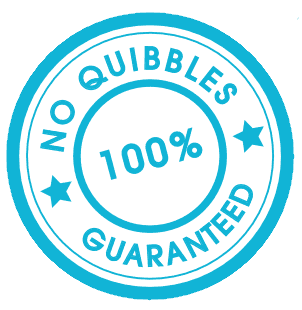
ScratchSleeves abide by a no quibbles guarantee.
Free UK Postage

Free packing and postage on all UK orders. For overseas orders to Europe postage is from £3.50, to USA is £6.50 and to the rest of the world, from £3.75.

